In a man’s world: The women politicians of Afghanistan
Presidential candidate to members of parliament & young diplomats, Afghan politics has more women than ever before.
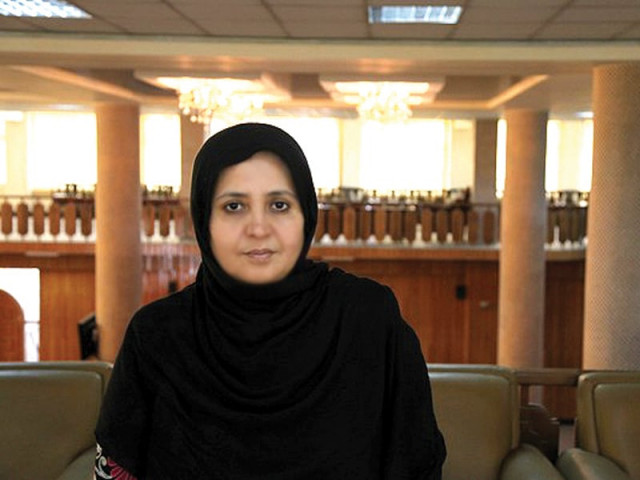
In a man’s world: The women politicians of Afghanistan
Watching her interact so freely and with such obvious confidence, one can see why she’s been named among the world’s “150 Fearless Women” by The Daily Beast news website for her bold account of the hardships that women face in Afghanistan in her book The Favoured Daughter. Wearing a solitaire ring and a chunky gold wristwatch on one hand, and carrying a designer bag on her arm, she reminded me a bit of Pakistan’s own foreign minister Hina Rabbani Khar.
There’s a great deal of substance to go with the style as well, and Koofi talks eloquently and with passion. She talks openly about women’s empowerment through education and access to better healthcare, saying that great strides have been made in the 11 years after the fall of the Taliban regime. She may not quite be the modern Malalai of Maiwand, the celebrated 19th century folk hero who rallied the Pashtun army against the British in the 1880 Battle of Maiwand, but her struggle is equally heroic.
In a deeply patriarchal society that is yet to fully accept women’s rights and participation in public life, Koofi and her fellow women parliamentarians have refused to bow down to rigid ideals and often suffocating customs.
Talking to us, a group of journalists who were part of an Af-Pak fellowship, she describes how women had to physically grab the microphone to make a speech in parliament because the male MPs would ignore their turn and would oppose resolutions put forward by them, just because they were women.
Being a shrinking violet in Afghanistan’s often rowdy parliament just isn’t an option. In June this year, women MPs caused an uproar when Justice Minister Habibullah Ghaleb suggested, during a conference organised by the Women’s Affairs Committee, that more than 250 women living in 12 foreign-funded shelters were prostitutes. He had said the shelters were encouraging girls to disobey their parents if they were stopped from going outside their homes.
While the women MPs were unable to get Afghan President Hamid Karzai to sack Ghaleb, it was nevertheless an achievement to be able to challenge the opinions of a man on the floor of the parliament.
Likewise, the dismissal of former politician Malala Joya from parliament in May 2007 for publicly denouncing the presence of those she called warlords and criminals in parliament was followed by condemnation from female politicians and local women. Three years later, Joya’s name appeared in the list of 100 Most Influential Women prepared annually by Time Magazine.
For Koofi, these are signs of hope. As her achievements would suggest, female parliamentarians have not settled for just being able to lambast society and state over the treatment of women. They have managed to wriggle out substantial — though still few — policy changes from the government.
After years of activism by Koofi and her fellow women parliamentarians, the government has fixed a quota for women in higher education institutions without which, she says, there is no point in allotting quotas for women in parliament. Egged on by this development, Koofi, who is also the chairperson of women rights in parliament — the only woman to have the post of a chairperson — has now proposed to President Karzai that at least one woman member be appointed in the Supreme Court.
“We need to increase women’s capacity for them to be able to effectively function on the political front,” she says. “This is the first time such a programme [like the new higher education policy] has been introduced for women. Trust me, this was not easy as months of work and campaigning are involved before a policy is approved.”
No matter how difficult it may be to overcome age-old Afghan traditions, women seem to be slowly making their presence felt in the political domain.
One indication of this is the Taliban’s absence of dissent to the presence of women in the High Peace Council’s governing body that is assigned with carrying out peace negotiations with them. Najia Zewari is one of two women who serve on the 15-member body, and it seems the Taliban have accepted her presence.
“The governing body directly negotiates with the Taliban, and that is not an easy thing to do,” she says. “But I am glad that us women have not once been criticised for being a part of the council.”
Overall, the HPC has 70 members, nine of which are women.
As Afghan women prepare themselves for a post-US withdrawal scenario, many of them are eager to take on new-found opportunities in Afghan politics. There has been a surge in admissions of female students in the Institute of Diplomacy (ID) in Kabul, and 21-year-old Hadeia Amiry, head of NGOs at the economics department of the Ministry of Foreign Affairs in Kabul, is one of them.
She hopes to become a politician one day, and says that she “would be more of a people’s representative than a conventional politician”. She is happy that the present government is supporting female political participation which, she says, cannot be increased until women receive higher education.
The ID’s one-year mandatory course for future diplomats includes subjects like politics, global political economy, conflict resolution, policy making, international relations, foreign languages, culture, ethics, organisational behaviour and entrepreneurship.
Other than the course, Amiry is also in the process of self-training: she wears suits and light makeup, and walks with obvious confidence. She crosses her hands at her back and broadens her shoulders while she stands to talk to her colleagues and guests at the office.
Yet at the same office, her colleague Samira (not her real name) is worried about getting permission from her husband for a one-week business-related foreign trip. She is a new bride and is not allowed to attend conferences abroad, even though her husband knew her from before and was aware that she worked at the foreign office.
This is what critics point to when they downplay the importance of Koofi and other likeminded women politicians and activists. To think that allowing women a few displays of opposition and giving them token political representation amounts to any substantial change in the way people think and act around them is naive at best, these critics contend.
“It will take another three decades before Afghanistan is ready for a female president,” says Faheem Dashti, editor-in-chief of Kabul Weekly. “I doubt even five men can handle the country after all that it has been through.”
Women parliamentarians are, in fact, aware of their limitations. A prominent feminist, journalist-turned-politician Shukriya Barakzai, agrees that even if an Afghan woman is successful, she still remains a victim of tradition.
For traditions to change in a patriarchal society, men need to change their mindset. But the country director of the Open Society Foundation, Najla Ayubi, a judge-turned-human rights activist, says there is still a long way to go before education starts changing the minds of men in Afghanistan. She believes that the government is trying to appease the Taliban, and hence would not want women in decision-making political offices.
But no matter how painstakingly slow the progress on women’s political representation is, for a country like Afghanistan, where war has ravaged lives for decades and the patriarchal mindset has reigned supreme, it is at least a starting point. It may take many years, even generations, before Afghan women can measure up to their counterparts in other countries, but the first steps on the road to emancipation have been taken by women like Koofi and Barakzai.
(This report was written during the Friedrich-Ebert-Stiftung Af-Pak fellowship 2012 in collaboration with The Express Tribune).
Published in The Express Tribune, Sunday Magazine, November 4th, 2012.
Like Express Tribune Magazine on Facebook and follow at @ETribuneMag


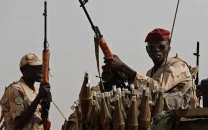



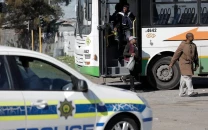


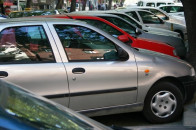

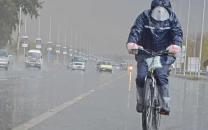
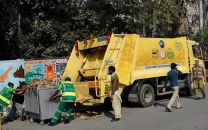






COMMENTS
Comments are moderated and generally will be posted if they are on-topic and not abusive.
For more information, please see our Comments FAQ